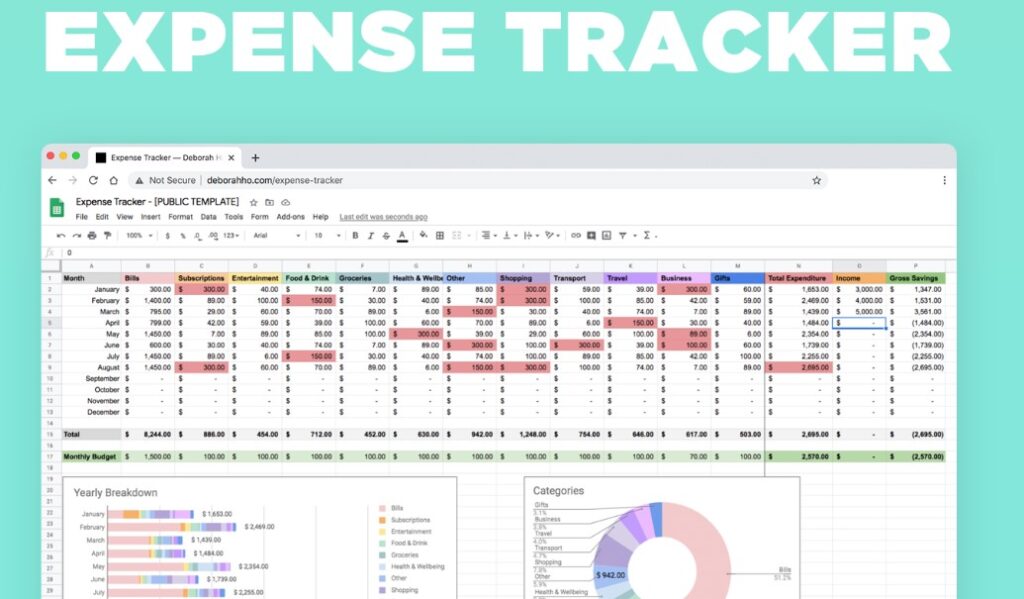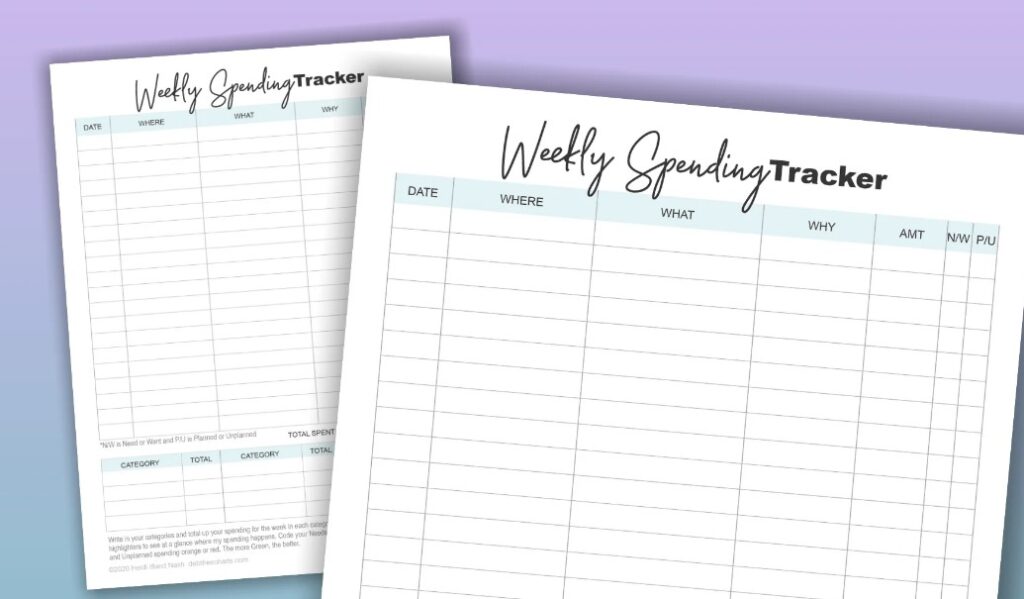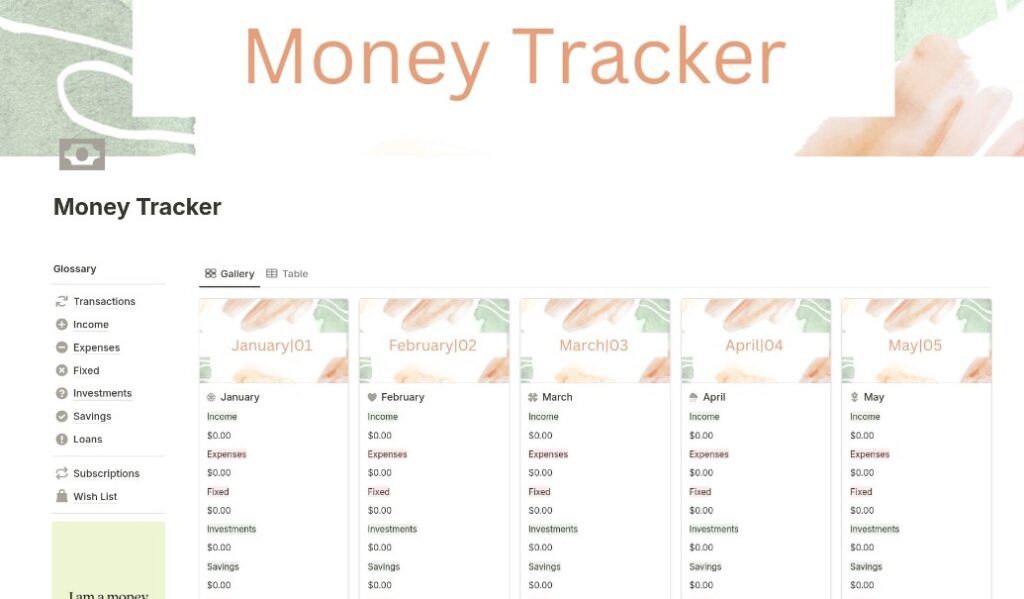Money Tracker: Tips Managing Your Finances Efficiently in 2024
Personal finance management can often feel overwhelming, especially when you’re trying to keep track of multiple accounts, bills, and expenses. Whether you’re a college student, a young professional, or planning for retirement, keeping a close eye on where your money is going is key to achieving financial security and reaching your goals. In recent years, digital money trackers have become indispensable tools for people seeking to better manage their finances.
A money tracker is a software application or tool designed to monitor your spending, help you save, and keep track of your financial progress over time. By using one of these tools, you can set budgets, track debts, organize bills, and even improve your financial literacy. As technology has evolved, these tools have become more sophisticated, offering a range of features and integrations that go far beyond basic expense tracking.
What is a Money Tracker?

A money tracker is a software application, usually available as a mobile app or web-based platform, that helps individuals manage their financial activities. By syncing with your bank accounts, credit cards, and even investment portfolios, a money tracker automates the process of categorizing your financial transactions. These tools often provide a clear and organized way to view all of your financial activities in one place.
The main goal of a money tracker is to give users complete visibility into their spending habits and help them make more informed financial decisions. In addition to tracking day-to-day expenses, many money trackers come equipped with budgeting tools, bill payment reminders, and goal-setting features that make it easier to stay on top of your finances and plan for the future.
Benefits of Using a Money Tracker
Using a money tracker comes with a wealth of benefits that can help you achieve your financial goals. Let’s delve deeper into the key advantages of adopting one of these tools for your personal finance management.
Improved Financial Awareness
One of the most significant benefits of using a money tracker is the improvement in your financial awareness. When you can see all of your spending and income in one place, you’ll gain a clearer picture of your financial habits. Many people are surprised to discover how much they spend on non-essential items like coffee, eating out, or subscription services. By tracking your expenses, you can identify areas where you’re overspending and make adjustments to improve your financial situation.
For instance, if you notice that you’re spending too much on dining out, you can reduce your restaurant visits or set a monthly spending limit. This increased awareness helps you make more informed financial decisions, allowing you to save money and stick to your budget.
Time-Saving Automation
One of the most significant advantages of money trackers is the automation they provide. By syncing with your bank accounts and credit cards, these apps automatically categorize your transactions, saving you the time and hassle of manual data entry. Additionally, many apps offer automatic bill reminders and recurring payment tracking, so you never miss an important due date.
By automating the most time-consuming aspects of financial management, money trackers allow you to focus on other tasks, like achieving your financial goals or making more strategic investments.
Financial Goal Setting and Progress Tracking
Money trackers are excellent tools for goal-oriented individuals. Whether you’re saving for a large purchase, paying off debt, or planning for retirement, these apps allow you to set up specific financial goals and track your progress over time. Some apps even offer visual reports, like graphs and charts, to show how close you are to reaching your target.
For example, if your goal is to save $10,000 for an emergency fund in the next year, the app will break down how much you need to save each month. It will also show you if you’re on track or if adjustments need to be made. This helps keep you motivated and on the right path.
Increased Financial Security
Keeping track of your finances in real-time helps avoid common financial pitfalls such as missed payments, overdraft fees, or untracked subscriptions. Many money trackers send notifications when bills are due or when your bank account balance is low, which helps you avoid late fees and ensures you’re always aware of your financial standing.
In addition, some apps come with security features such as two-factor authentication and data encryption, which protect your sensitive financial data. This added security gives you peace of mind, knowing your information is safe and secure.
Why is a Money Tracker Important?

A money tracker is an indispensable tool that can help you gain better control over your financial life. In a world of rising expenses, complex financial products, and an ever-growing number of subscriptions, managing personal finances can become overwhelming. Here are some key points highlighting the importance of using a money tracker:
1. Enhanced Financial Awareness
- Understanding Spending: A money tracker provides a clear, real-time view of where your money is going. By categorizing expenses automatically (such as groceries, bills, entertainment), it helps you see your spending habits and identify areas where you can cut back.
- Tracking All Transactions: From bank account activity to credit card purchases, money trackers consolidate all your financial transactions into one place, ensuring nothing slips through the cracks.
2. Better Budgeting and Control
- Set Spending Limits: You can create budgets for specific categories like dining out, utilities, or savings. A tracker will monitor your spending in real-time, helping you avoid overspending.
- Proactive Adjustments: Notifications from the money tracker can alert you when you’re close to hitting your budget limit, allowing you to adjust your spending before it gets out of hand.
- Prevents Overspending: By tracking your income versus expenses, you can avoid the common pitfall of spending more than you earn, which leads to debt.
3. Financial Goal Setting and Progress Tracking
- Achieve Financial Goals: Money trackers allow you to set financial goals such as saving for a vacation, building an emergency fund, or paying off debt. These apps provide progress reports, so you can monitor how close you are to reaching these objectives.
- Motivation to Save: With a clear view of your goals and milestones, you’re more likely to stay motivated and focused on achieving your desired financial outcomes.
4. Reducing Financial Stress
- Minimizing Uncertainty: Knowing your financial status at all times helps alleviate the stress of unexpected expenses or forgotten bills. Money trackers send reminders for due dates, reducing anxiety about late payments and fees.
- Real-Time Alerts: Many apps notify you when your balance is low or if there are unusual transactions, allowing you to address potential issues before they escalate.
5. Improved Saving Habits
- Automated Saving Features: Some trackers offer features like rounding up your purchases and saving the spare change, making saving effortless and automatic. This helps you build savings without consciously thinking about it.
- Better Expense Management: By recognizing where you’re overspending, you can reallocate funds to your savings, helping you meet your financial goals faster.
6. Tracking Debts and Loans
- Debt Management: Money trackers help you monitor debts, including credit cards, student loans, and mortgages. They track due dates, minimum payments, and remaining balances.
- Strategic Repayment Plans: Many money trackers allow you to create strategies to pay down high-interest debt first or pay off loans more quickly, helping you become debt-free faster.
7. Financial Insights and Education
- Personalized Recommendations: Money trackers analyze your spending patterns and offer personalized tips on saving and investing, guiding you to make smarter financial decisions.
- Increased Financial Literacy: Many apps offer resources such as articles, webinars, and advice to educate users on improving their financial habits and strategies for growing wealth.
8. Security and Fraud Prevention
- Monitor for Fraud: Money trackers offer real-time monitoring of your bank and credit card transactions, helping to identify unauthorized transactions immediately.
- Fraud Detection: Alerts for unusual spending can prevent fraud before it becomes a significant issue, allowing you to take quick action and report fraudulent activity to your bank.
Top Money Tracker Apps: In-Depth Reviews

Now that we’ve covered the general benefits of using a money tracker, let’s take a closer look at three popular money tracker apps. We’ll break down the features, pros, cons, pricing, and ideal use cases for each of these tools to help you choose the one that best suits your financial needs.
1. Mint: The Free Comprehensive Money Tracker
Mint is one of the most widely used money tracker apps available today. Developed by Intuit (the makers of TurboTax and QuickBooks), Mint offers a powerful, free platform to track your expenses, set budgets, and monitor your credit score.
Features:
- Automatic transaction categorization from your linked bank accounts and credit cards
- Bill payment reminders and due date notifications
- Credit score monitoring and personalized insights
- Financial reports and budgeting tools
Pros:
- Completely free to use
- Intuitive interface that’s easy for beginners
- Offers personalized financial insights based on your spending habits
- Supports a wide range of financial institutions
Cons:
- Ads within the app can be intrusive
- Limited investment tracking features
- Some users report occasional syncing issues with accounts
Price: Free; Mint also offers a premium subscription with additional features for $4.99 per month.
Ideal For: Mint is perfect for individuals who want a free, straightforward way to track their finances and create a budget. It’s an excellent option for people just starting their journey to better financial management and those who don’t need advanced investment tools.
2. YNAB (You Need A Budget): Budgeting Made Simple
YNAB is a premium budgeting tool that’s focused on helping users build sustainable financial habits through effective budgeting. The YNAB is designed to help you prioritize your spending, get out of debt, and save for long-term goals.
Features:
- Zero-based budgeting, which helps you allocate every dollar toward a specific purpose
- Goal-setting tools for saving and debt repayment
- Detailed spending reports and visual progress tracking
- Real-time updates and bank syncing
Pros:
- Highly effective for people who need a strict budgeting system
- Focuses on financial education, offering valuable resources to improve your financial habits
- Provides excellent customer support and community resources
Cons:
- The learning curve can be steep for beginners
- More expensive than other options, especially considering it’s a paid app
Price: $14.99 per month or $98.99 per year (free 34-day trial available)
Ideal For: YNAB is great for individuals who are serious about budgeting and improving their financial discipline. It’s ideal for people who want to pay off debt, build savings, or achieve specific financial goals with a structured approach.
3. PocketGuard: Simple and Effective Spending Tracker
PocketGuard is a user-friendly money tracker app that focuses on helping you see how much disposable income you have after accounting for bills, savings, and necessary expenses. The PocketGuard helps you stay within your budget and avoid overspending.
Features:
- Tracks recurring bills and subscriptions
- Provides a simple “In My Pocket” feature to show how much money you have left to spend
- Real-time spending tracking and financial insights
- Automated bill reminders
Pros:
- Simple, easy-to-use interface
- Focuses on limiting overspending by showing you how much is available to spend
- Bill negotiation service that helps lower recurring expenses
Cons:
- Lacks advanced features for investment tracking
- Limited customization options compared to other budgeting apps
Price: Free; PocketGuard Plus available for $7.99 per month.
Ideal For: PocketGuard is ideal for individuals who want a no-frills way to track spending and manage their budget. It’s best for those who want to simplify their financial management without diving into complex budgeting strategies.
Where to Buy and How to Purchase Money Tracker Apps
Most of the money tracker apps mentioned in this guide can be downloaded directly from their respective websites or app stores. They are available for both Android and iOS devices.
- Mint: Download for free from Google Play or the Apple App Store.
- YNAB: Sign up for a free trial or purchase a subscription at YNAB’s website.
- PocketGuard: Download from Google Play or Apple App Store.
FAQs About Money Trackers
1. Are money tracker apps free to use?
Yes, many money tracker apps offer free versions with basic features. However, to access premium tools like advanced financial insights, investment tracking, or automatic bill negotiation, you may need to pay for a subscription.
2. Can I link my bank accounts to a money tracker app?
Yes, most money tracker apps allow you to link your bank accounts, credit cards, and other financial accounts. This enables the app to automatically categorize your transactions, making it easier to track your spending.
3. Can money tracker apps help me save money?
Absolutely! Many money tracker apps come with features like goal-setting, spending alerts, and budget limits that help users save money. By tracking your expenses and prioritizing your spending, these apps can help you achieve your financial goals more effectively.